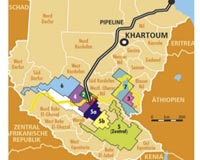 |
Washington (AFP) Jan 6, 2011 A US panel skewered British giant BP as well as Halliburton and Transocean, saying management failures were to blame for the Gulf oil spill, and warned without reform such a disaster could happen again. Releasing a key chapter of its final report, the panel Wednesday also took aim at US government officials, sharply criticizing them for lax oversight of both the operation in the Gulf of Mexico and the industry. The root causes of the blowout were "systemic and, absent significant reform in both industry practices and government policies, might well recur," the report said. Despite the "inherent risks" of deepwater drilling, "the accident of April 20 was avoidable," it said, listing nine key decisions which were made to save time or money even though a safer alternative was available. The explosion on the Deepwater Horizon rig off the Louisiana coast "resulted from clear mistakes made in the first instance by BP, Halliburton, and Transocean, and by government officials who, relying too much on industry's assertions of the safety of their operations, failed to create and apply a program of regulatory oversight that would have properly minimized the risks of deepwater drilling." BP welcomed the assessment, which analysts said would likely see the British company paying less compensation costs than expected -- it is selling 30 billion dollars worth of assets to cover its part of the bill. The company's shares rallied on Thursday after the panel said the British energy company was not solely to blame for the fatal Gulf of Mexico spill. "Sharing the blame is helping BP shares to recover. When the disaster struck the only company blamed was BP, now it appears that others are responsible too," said Tamas Varga, an analyst at brokers PVM Oil Associates. The presidential commission's assessment was part of its final report, to be released next week, on the deadly April blowout of BP's Macondo well. Eleven workers were killed on the exploratory platform, which then sank, leaving the damaged drill to spew some 4.9 million barrels of oil into the Gulf over three months. The blowout "was the product of several individual missteps and oversights by BP, Halliburton and Transocean, which government regulators lacked the authority, the necessary resources and the technical expertise to prevent," the report said. Transocean owned the BP-leased Deepwater Horizon platform. And in October, Halliburton admitted skipping a key cement test before the blowout, but blamed BP for not testing the integrity of the job. "Whether purposeful or not, many of the decisions that BP, Halliburton and Transocean made that increased the risk of the Macondo blowout clearly saved those companies significant time (and money)." Saying it supported the presidential commission's probe into the incident, BP stressed that preliminary findings concluded that "the accident was the result of multiple causes, involving multiple companies." The beleaguered firm said it was working with regulators and the industry "to ensure that the lessons learned from Macondo lead to improvements in operations and contractor services in deepwater drilling." The findings "only compound our sense of tragedy because we know now that the blowout of the Macondo well was avoidable," said former Florida senator Bob Graham, the commission's co-chair. "This disaster likely would not have happened had the companies involved been guided by an unrelenting commitment to safety first. And it likely would not have happened if the responsible governmental regulators had the capacity and will to demand world class safety standards." According to the report, the Macondo well blew out when a series of "separate risk factors, oversights and outright mistakes combined to overwhelm the safeguards" designed to prevent such an event. "But most of the mistakes and oversights at Macondo can be traced back to a single overarching failure -- a failure of management," it added. "Better management by BP, Halliburton and Transocean would almost certainly have prevented the blowout." The seven-member panel was set up by US President Barack Obama and tasked with finding out what caused the accident, which sullied miles (kilometers) of coastline along the five Gulf states stretching from Texas to Florida. The Gulf region's key fishing and tourism industries took a severe hit, and rare wildlife and plants were damaged and destroyed.
Share This Article With Planet Earth
Related Links Powering The World in the 21st Century at Energy-Daily.com
 Openness on oil revenues seen as key to Sudan peace
Openness on oil revenues seen as key to Sudan peaceJuba, Sudan (AFP) Jan 6, 2011 Greater openness from Khartoum about Sudanese oil revenues will be key to keeping the peace with the south after next week's independence vote, a campaign group warned on Thursday. British-based organisation Global Witness said the Khartoum government had yet to give a satisfactory explanation for discrepancies between its own figures for crude output and those given by oil firms operating i ... read more |
|
| The content herein, unless otherwise known to be public domain, are Copyright 1995-2010 - SpaceDaily. AFP and UPI Wire Stories are copyright Agence France-Presse and United Press International. ESA Portal Reports are copyright European Space Agency. All NASA sourced material is public domain. Additional copyrights may apply in whole or part to other bona fide parties. Advertising does not imply endorsement,agreement or approval of any opinions, statements or information provided by SpaceDaily on any Web page published or hosted by SpaceDaily. Privacy Statement |